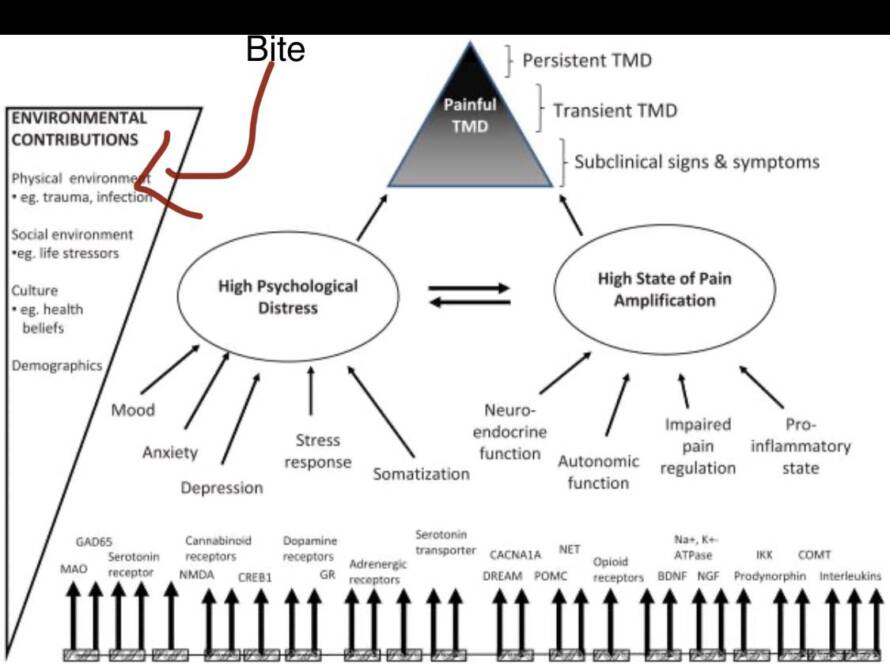Introduction
Definition of Jaw Clicking
Jaw clicking refers to the audible clicking or popping sound that occurs when the jaw is moved, typically while chewing, talking, or yawning. This phenomenon is often associated with temporomandibular joint (TMJ) disorders but can have various other causes.
Relevance and Importance
Jaw clicking occurs in about 30-40% of adults and about 15% of adolescents. While jaw clicking tends to be benign most of the time, understanding jaw clicking is crucial because it can be a symptom of underlying health issues such as arthritis. Proper diagnosis and treatment can prevent further complications, such as chronic pain and impaired jaw function,
thereby improving the quality of life.
Types and Categories
Temporomandibular Joint Disorder (TMJ): TMJ disorders involve dysfunction in the joint connecting the jawbone to the skull, causing pain and impaired movement. Jaw clicking is a common symptom of TMJ disorders; the clicking sound usually occurs when the cartilage (aka TMJ disc) between the condyle (part of mandible) and maxilla slips out. When the jaw opens, the disc slips back on top of the condyle and there is a sound from the friction which is the “click.”
Arthritis-related Jaw Clicking: Arthritis, particularly osteoarthritis and rheumatoid arthritis, can affect the temporomandibular
joint, leading to inflammation, pain, and clicking sounds. In the presence of arthritis, there is commonly a soft crunchy noise (crepitus) in addition to clicking.
Injury-induced Jaw Clicking: Trauma or injury to the jaw or head can cause misalignment or damage to the TMJ, resulting
in clicking sounds during jaw movement.
Symptoms and Signs
Common Symptoms
– Clicking Sound: An audible clicking or popping sound when moving the jaw.
– Pain in the Jaw: Discomfort or pain, often worsening with movement.
– Difficulty Chewing: Trouble chewing food or experiencing pain while doing so.
– Lockjaw: A condition where the jaw becomes stuck in an open or closed position.
– Trouble biting down.
Uncommon Symptoms
– Ear Pain: Pain radiating to the ears due to the close proximity of the jaw joint.
– Headaches: Tension headaches or migraines stemming from jaw issues.
– Tinnitus: Ringing in the ears, which can be related to TMJ disorders.
Causes and Risk Factors
– The disc often slips out with no clear cause
– Mechanical strain: the disc is held in place by elastic ligaments around it. If there is
an acute trauma (think whiplash), the elastic ligaments may lose some elasticity and
allow the disc to slip out (also called anterior disc displacement).
– Loose ligaments: the disc slips out if someone suffers from loose ligaments. In
medical conditions such as Ehler Danlos syndrome, this occurs commonly.
Diagnosis and Tests
Physical Examination
A thorough physical examination by a healthcare professional to assess jaw movement and identify any abnormalities.
Imaging Tests
– X-rays: Useful for viewing the bones and joint structure.
– MRI: Provides detailed images of the soft tissues, including muscles and cartilage.
– CT Scan: Offers a comprehensive view of the bone structure and surrounding tissues.
Examination:
Assessment of jaw clicking involves assessing the TMJ, jaw and neck muscles, teeth, bite,
nerves, range of movement of jaw and neck.
Treatment Options
Medical Treatments
– Occlusal orthotics: occlusal orthotics or mouthguards are used as physical medicine
devices (typically during night) to help improve mechanics of the joint structures
including the disc and muscles.
– Medications: Pain relievers, muscle relaxants, and anti-inflammatory drugs to
alleviate symptoms.
– Injections: Corticosteroid injections to reduce inflammation and pain. Sodium
hyaluronate is a lubricant which is used to reduce friction in the joint.
– Surgery: Surgery is almost never indicated for jaw clicking.
– Physical Therapy: Exercises and techniques to improve jaw function and reduce
pain.
– Cognitive Behavioral Therapy (CBT): To manage stress and reduce habits that
exacerbate jaw clicking.
– Acupuncture: Alternative treatment to relieve pain and improve jaw function.
Lifestyle Adjustments
– Diet Changes: Adopting a soft food diet to reduce strain on the jaw.
– Stress Management: Techniques such as meditation and relaxation exercises to lower
stress levels.
– Sleep Hygiene: Improving sleep patterns to reduce bruxism.
Preventive Measures
Good Posture Practices
Maintaining good posture, especially of the neck and shoulders, to prevent strain on the jaw.
Stress Reduction Techniques
Regular practice of stress-reducing activities, such as yoga or deep-breathing exercises.
Healthy Diet Habits
Eating a balanced diet and avoiding hard, chewy foods to minimize jaw strain.
Avoiding Harmful Habits
Avoiding habits such as nail-biting, gum chewing, and using teeth to open objects.
Conclusion
Summary of Key Points
Recap of the main causes, symptoms, and treatments for jaw clicking.
Call to Action for Further Education
Encouragement to seek professional advice and further information on jaw health.
—
By addressing jaw clicking through understanding its causes, recognizing symptoms, and
exploring various treatments, individuals can find relief and improve their overall oral health.
For those experiencing jaw clicking, consulting with healthcare professionals and
implementing preventive measures can make a significant difference in their quality of life.


